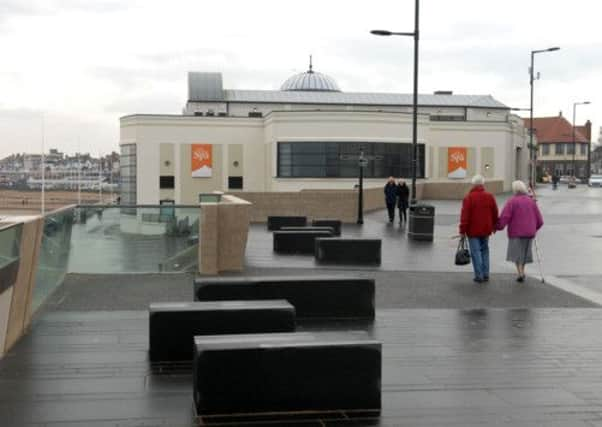Council accused over Bridlington regeneration row


The campaign group Justice for Bridlington wanted all 67 members of East Riding Council to formally agree to five pledges, followed by a declaration to “actively use every democratic option open to me as a councillor to scrutinise and to publicly hold to account all those responsible for the current situation in Bridlington”.
Mathew Buckley, the council’s head of legal and democratic services, advised them not to respond until the matter had been considered further.
Advertisement
Hide AdAdvertisement
Hide AdHe later said in a statement: “We have asked members not to reply to the email from ‘Justice 4 Bridlington’ at this moment, either positively or negatively, as it deals with a matter that may still require decisions from councillors in the future.
“The statement commits those signing it to a course of action and councillors signing up to such a statement may run the risk that they are unable to take part in discussions on these matters in the future as by signing the declaration they have predetermined their position.
“Whilst it is considered whether members would run such a risk, they have been asked not to respond to the email at this time.”
Campaigners, however, claim this is contrary to one of the aims of the Localism Act, which was intended to allow councillors more freedom to comment on and engage with local issues.
Advertisement
Hide AdAdvertisement
Hide AdGovernment guidance explaining the Act said: “...the Government has used the Localism Act to clarify the rules on ‘predetermination’.
“These rules were developed to ensure that councillors came to council discussions - on, for example, planning applications - with an open mind.
“In practice, however, these rules had been interpreted in such a way as to reduce the quality of local debate and stifle valid discussion. In some cases councillors were warned off doing such things as campaigning, talking with constituents, or publicly expressing views on local issues, for fear of being accused of bias or facing legal challenge.
“The Localism Act makes it clear that it is proper for councillors to play an active part in local discussions, and that they should not be liable to legal challenge as a result.
Advertisement
Hide AdAdvertisement
Hide Ad“This will help them better represent their constituents and enrich local democratic debate.”
Campaign member Geoff Pickering said: “Changes in the Localism Act mean that councillors can no longer be gagged by the rules of predetermination.
“If this is Mr Buckley’s advice he has some explaining to do if he thinks asking councillors to investigate and scrutinise the actions of the council stops them making decisions in the future.”
A council spokesman said: “The council is still looking into the matter of the email sent from Justice 4 Bridlington to members.”
Advertisement
Hide AdAdvertisement
Hide AdThe campaign was launched following an announcement in April by supermarket giant Tesco that it had abandoned plans to open a new store in the town.
This would have freed its existing site for a new retail development that was a key part of the Bridlington Area Action Plan, which it was hoped would bring £200m of investment to the resort.
Last year the plan suffered a blow when a Government inspector ruled out the development of the harbour top following an 18-month public inquiry.
Campaigners claim more than £60m has already being spent on “ineffective” regeneration in the town. The authority insists it remains committed to regenerating the town and that other elements of the AAP can still be delivered.